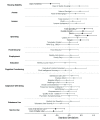Unconditional cash transfers reduce homelessness
- PMID: 37643214
- PMCID: PMC10483630
- DOI: 10.1073/pnas.2222103120
Unconditional cash transfers reduce homelessness
Abstract
Homelessness is an economic and social crisis. In a cluster-randomized controlled trial, we address a core cause of homelessness-lack of money-by providing a one-time unconditional cash transfer of CAD$7,500 to each of 50 individuals experiencing homelessness, with another 65 as controls in Vancouver, BC. Exploratory analyses showed that over 1 y, cash recipients spent fewer days homeless, increased savings and spending with no increase in temptation goods spending, and generated societal net savings of $777 per recipient via reduced time in shelters. Additional experiments revealed public mistrust toward the ability of homeless individuals to manage money and demonstrated interventions to increase public support for a cash transfer policy using counter-stereotypical or utilitarian messaging. Together, this research offers a new approach to address homelessness and provides insights into homelessness reduction policies.
Keywords: cash transfer; cognitive function; homelessness; randomized controlled trial; subjective wellbeing.
Conflict of interest statement
J.Z. was on the NLP board of directors from 2016 to 2020.
Figures

References
-
- UN Habitat, “World cities report 2020: The value of sustainable urbanization” (Nairobi, Kenya, 2020). https://unhabitat.org/sites/default/files/2020/10/wcr_2020_report.pdf. Accessed 23 June 2021.
-
- Flaming D., Toros H., Burns P., “Home not found: The cost of homelessness in Silicon Valley” (Los Angeles, USA, 2015). https://destinationhomesv.org/wp-content/uploads/2021/01/er_homenotfound.... Accessed 10 August 2021.
Publication types
MeSH terms
LinkOut - more resources
Full Text Sources
Medical
Miscellaneous

